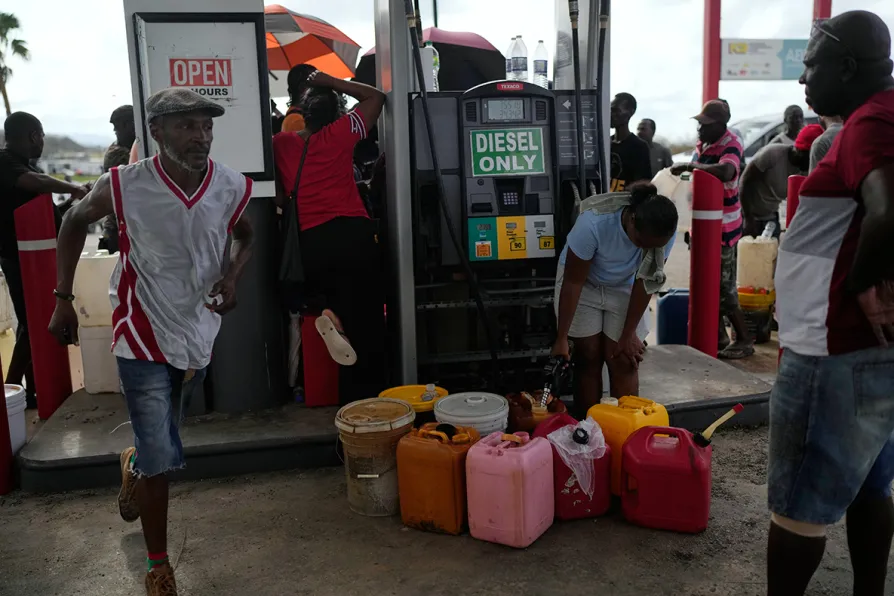
 People line up for fuel in Montego Bay, Jamaica, in the aftermath of Hurricane Melissa, October 31, 2025
People line up for fuel in Montego Bay, Jamaica, in the aftermath of Hurricane Melissa, October 31, 2025
UNITED NATIONS officials said on Thursday that Hurricane Melissa blew nearly 5 million tons of debris across western Jamaica last week and warned it is preventing crews from delivering aid and restoring critical services quickly.
UN Development Programme representative in Jamaica Kishan Khoday said: “We need to act fast because delay means blocked roads, vital services at a standstill, lost income and increased suffering.”
Local government officials revealed on Thursday that the storm ripped the roofs off 120,000 structures when it struck last week, affecting some 90,000 families in the island’s west.
More than 180 shelters remain open, with 2,487 people living in them more than a week after the category five storm hit the island, according to Alvin Gayle, director-general of Jamaica’s emergency management office.
Crews are still clearing roads in an attempt to reach 27 communities that remain cut off by landslides and flooding.
Prime Minister Andrew Holness said: “I hear the cry of every baby that is now hungry in a community that is not yet reached. It goes to bed with me.”
Roughly half the island remains without power, although officials have set up generators and Wi-Fi hubs in certain communities.
“We are making progress every day in restoring power, telecommunications, water, clearing roads and delivering aid,” Mr Gayle said.
Melissa was one of the strongest Atlantic hurricanes on record, with Mr Holness noting that the storm caused at least $6 billion (£4.4bn) in damage, according to preliminary estimates.
Melissa killed at least 32 people in Jamaica and another 43 in nearby Haiti, where 13 others remain missing.
It also damaged structures in eastern Cuba, where there were no casualties after authorities evacuated thousands before the storm made landfall last week.










